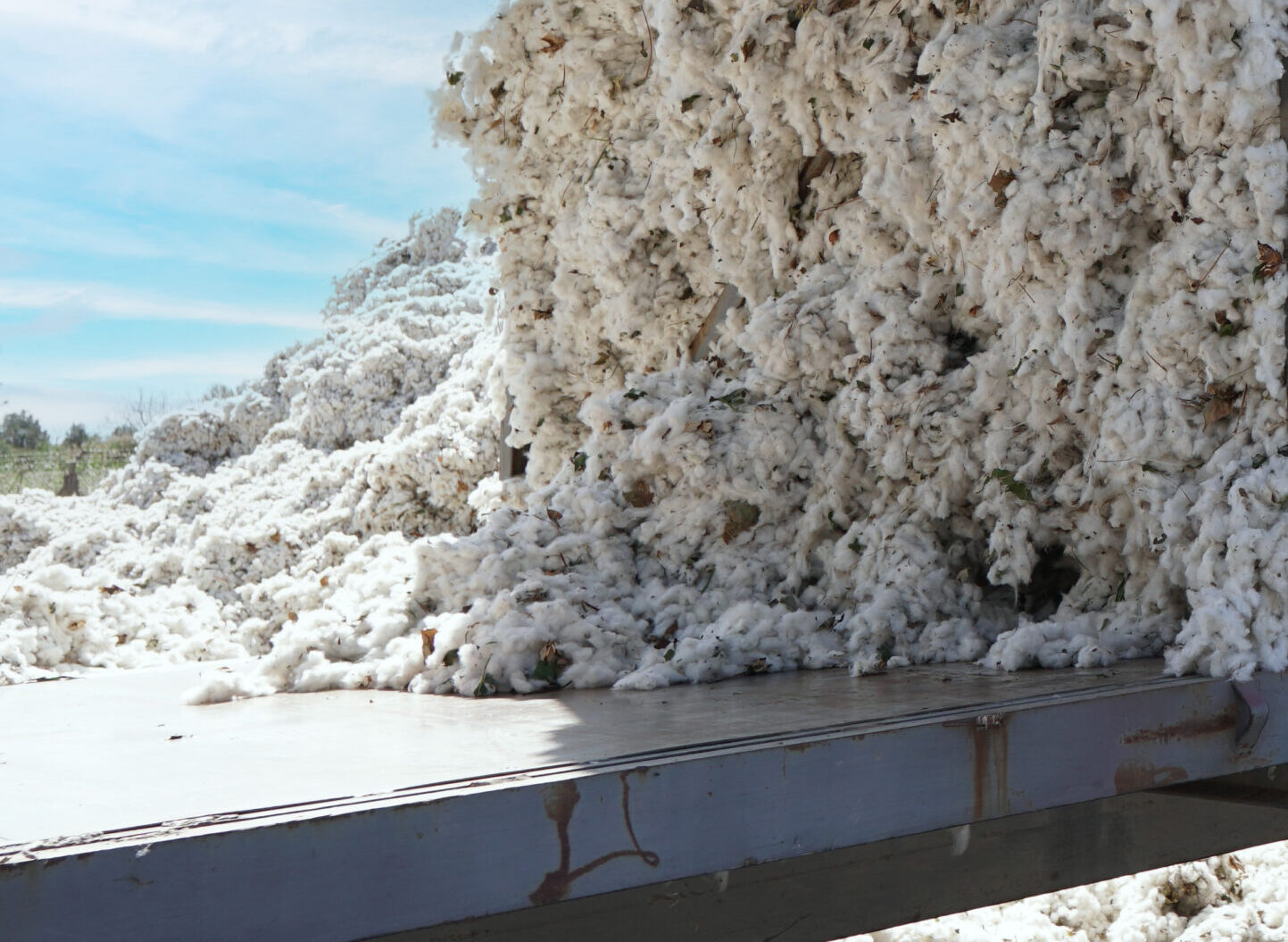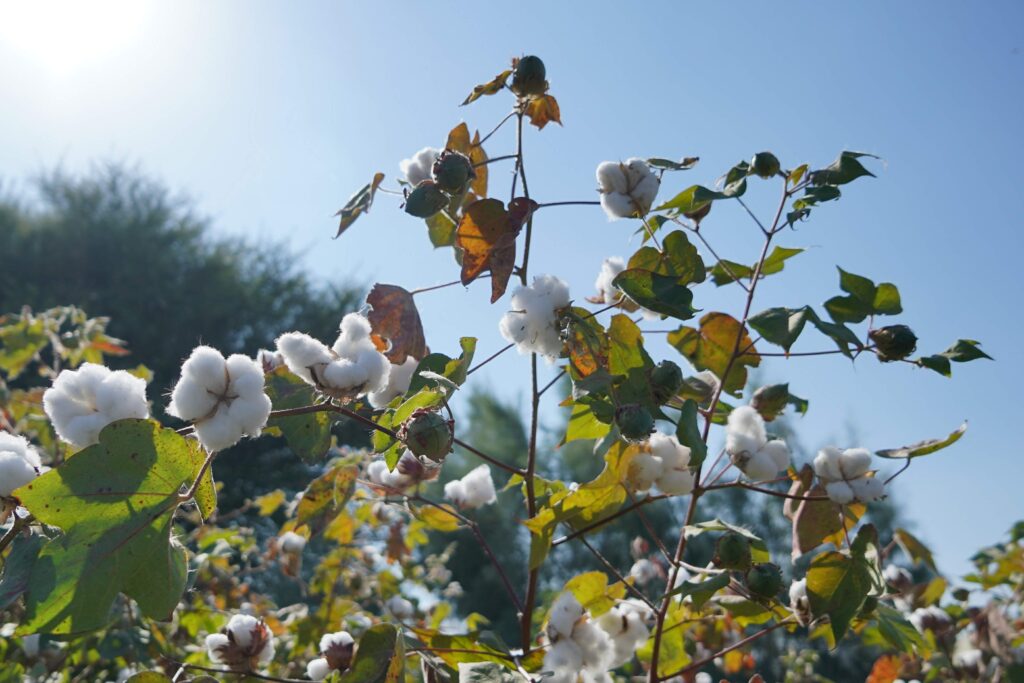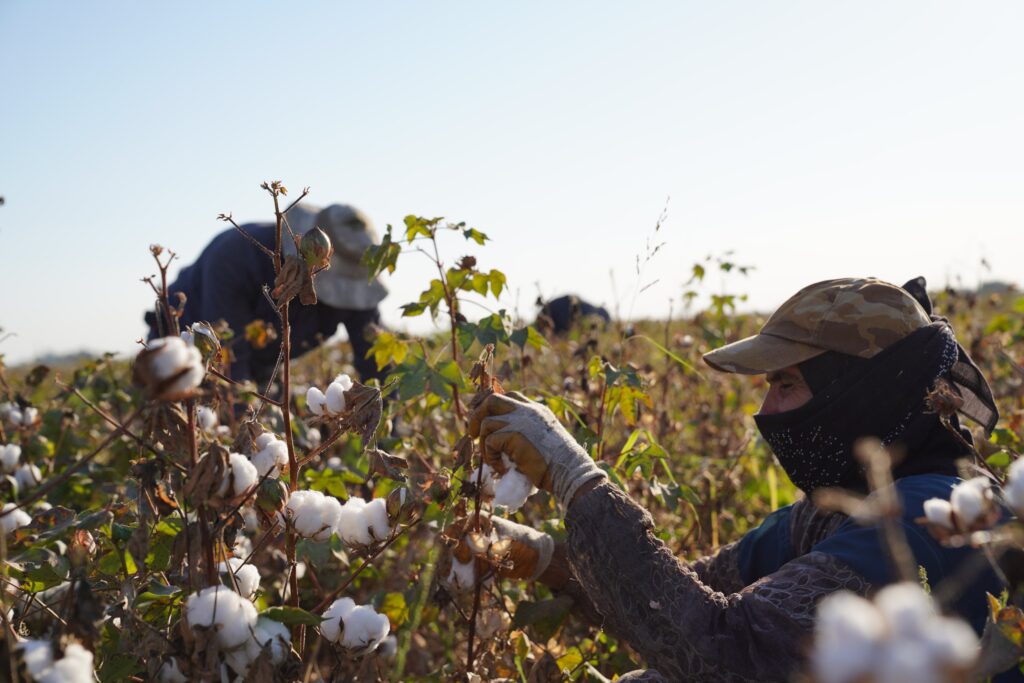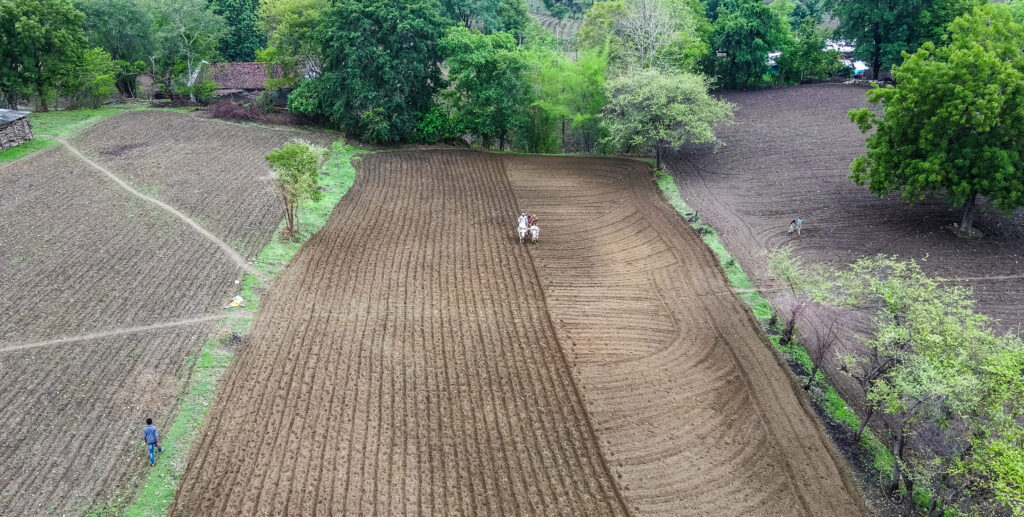The Organic Cotton Accelerator joined an EU Green Week 2025 partner event earlier this summer, hosted by Ohana Public Affairs. The discussion brought together EU institutions, industry leaders, and representatives from non-governmental organisations, and speakers from Textile Exchange, VF Corporation’s Global Sustainability team, and the European Environment Agency. Together, we explored how sustainably sourced renewable and recycled materials can be better integrated into the EU policy landscape, particularly the Eco-design for Sustainable Products Regulation (ESPR).
Why raw material choice matters
The textile industry significantly contributes to rising greenhouse gas emissions. Emissions are generated from multiple stages of the value chain: the extensive use of fertilisers and pesticides in natural fibre production, land-use changes to expand agricultural areas, material production and finishing, and reliance on fossil fuels for both synthetic and natural fibre production. In fact, raw material extraction, whether from plants, animals, or fossil-based sources account for a significant portion the textile industry emissions.
Recycling is often presented as the main solution for the sector’s environmental challenges. However, while recycling and recycled inputs are crucial for reducing the negative environmental impact of the sector and scaling of textile circularity, current infrastructural and economic constraints make it difficult for recycling alone to meet the industry demand. This is why sustainable renewable materials offer essential environmental and social benefits and must be formally recognised in legislative frameworks to genuinely achieve a sustainable textile sector.
OCA’s call at EU Green Week
At the event, speakers raised concerns about an over-reliance on recycled materials in policy frameworks, underscoring the need to scale supply availability, align regulatory frameworks with industry realities, and provide financial incentives to stimulate innovation. OCA presented organic cotton as a sustainably sourced renewable material that is traceable, and scalable. Backed by scientific evidence, and aligned with the UN S Sustainable Development Goals, organic cotton deserves a formal recognition under the ESPR. We called for an accompanying information requirement under eco-design rules.
Raw material choices are not just about the environmental impact of textile products but also can support a just transition that protects both the planet and the livelihoods of farmer communities. With ambitious policy support, organic cotton can reach its full potential to deliver meaningful change from farm to fashion.




